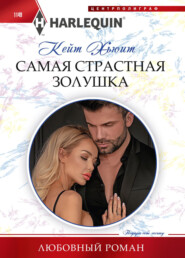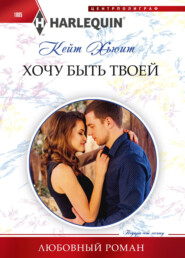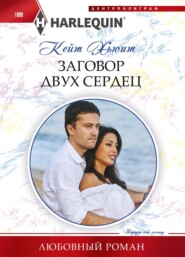По всем вопросам обращайтесь на: info@litportal.ru
(©) 2003-2025.
✖
The Bride's Awakening
Автор
Год написания книги
2018
Настройки чтения
Размер шрифта
Высота строк
Поля
Ana looked at him in surprise. Dinner in his own castle? She’d been to the castle once, for a Christmas party when she was a child. She remembered a huge Christmas tree, twenty feet high, in the castle’s soaring entrance hall, and eating too many sweets.
Uneasily, Ana realized Vittorio and her father had been talking, and she hadn’t heard a word. Now Vittorio turned to her, smiling solicitously. ‘We should go.’
‘Yes, all right.’
One hand rested lightly on the small of her back—the simple touch seemed to burn—as Vittorio said goodbye to Enrico and then led her out to the softly falling darkness and his waiting car.
Vittorio opened the passenger door for Ana before sliding in the driver’s side. She was nervous, he saw, and her clothes were utterly atrocious. He’d been about to compliment her when she’d first opened the door and had just stopped himself from uttering what they both knew would be more unwanted false flattery.
He drummed his fingers against the steering wheel as Ana fastened her seat belt. He felt impatient, as he so often did, and also, strangely, a little uncertain. He didn’t like either feeling. He didn’t know how best to approach Ana, how to court her, if such a thing could even be done. He doubted he could act convincingly enough. As intelligent and decent a human being as she obviously was, she was not a woman to take to bed. Yet if this marriage was to work—if he were to have an heir—then he would be taking her to bed, and more than once.
Vittorio dwelt rather moodily on that scenario before pushing it aside. He could have chosen another woman, of course; there were plenty of pretty—gorgeous, even—socialites in Italy who would relish becoming the Contessa of Cazlevara. Women he would gladly take to bed but, ironically perhaps, he did not wish to marry them.
Their vineyards did not border his own; they were not dedicated to winemaking, to the region. They were not particularly loyal. They were not, any of them, wife material.
Ana was. When he’d contemplated taking a wife, Ana Viale had ticked every box quite neatly. Experienced in winemaking, running her own vineyard, a dutiful daughter, healthy and relatively young.
And, of course, loyalty. He’d read of her loyalty to her family, and her family’s vineyard, in that magazine article. Loyalty was a necessity, an absolute; he would not be betrayed again, not by those closest to him.
No, Anamaria Viale was the wife he wanted. The only wife he wanted.
His hands tightened on the steering wheel as he thought of the other reason—really, the main reason—he wished to marry at all. He needed an heir. God willing, Ana would provide him with one, and would keep his brother—treacherous Bernardo—from ever becoming Count, as his mother had so recently told him she wanted.
The conversation, as it always was with Constantia, the current Countess, had been laced with bitterness on both sides. She’d rung asking for money; had there ever been anything else she wanted from him?
‘I don’t know why you hoard all your money, Vittorio,’ she’d said a bit sulkily. ‘Who are you keeping it for?’
He’d been distracted by the business emails on his computer screen, her words penetrating only after a moment. ‘What do you mean?’
She’d sighed, the sound impatient and a bit contemptuous; it was a sound he remembered well from childhood, for it had punctuated nearly every conversation he’d had with his mother. ‘Only that you are getting on in years, my son,’ she had said, and he had heard the mocking note in her voice. ‘You’re thirty-seven. You are not likely to marry, are you?’
‘I don’t know,’ he’d replied, and she’d laughed softly, the sound making the hair on the nape of his neck prickle.
‘But if you don’t marry, Vittorio, you can’t produce an heir. And then you know what happens, don’t you?’ She sighed again, the sound different this time, almost sad. ‘Bernardo becomes Count.’
He’d frozen then, his hand curled around the receiver, his eyes dark with memory and pain. That was what his mother had always wanted, what his brother had wanted. He’d known it for years, ever since they’d first tried to steal his inheritance from him, his father barely in the grave.
He didn’t forget.
And how could he have forgotten the importance of marriage, of children? He’d been so intent on improving Cazlevara Wines, of forgetting the unhappiness he knew waited for him back home. He’d never considered the future, his future. His heirs.
Now he did. He’d considered carefully, chosen his bride as he would a fine wine. Now he just needed to decide when to decant it.
Vittorio drummed his fingers against the steering wheel again and saw Ana slide him a wary glance. How to approach his chosen bride? She sat tensely, one hand clenched around the door handle as if she would escape the speeding car. The suit she wore looked like something pulled out of a convent’s charity box and it did nothing for her tall, generous figure. Not that there was something to be done for her figure, but Vittorio imagined that some decent clothes and make-up could go some way to improving his intended bride’s appearance.
His mouth twisted. What would Ana think if she knew he planned to marry her—and as soon as possible? Of course, any woman should be thrilled to become part of the Cazlevara dynasty, yet he felt instinctively that Ana Viale might balk. He knew from the other night at San Stefano Castle that she would not be fooled by his attempts to flatter or romance her, and why should she? God knew, the women he usually had on his arm or in his bed did not look or dress or even talk like Ana Viale. Yet he didn’t want to marry them. He wanted to marry Ana. It was a matter of expediency, of business.
And that, Vittorio decided, was how he would present the marriage to her. She appreciated plain speaking, and so he would speak as plainly as possible. The thought appealed to him. He wouldn’t have to waste time pretending to be attracted to her. Most women would enjoy a little flattery, but he knew now that it would only annoy Ana, perhaps even hurt her.
A tiny twinge of something close to guilt pierced his conscience. Would Ana want some kind of real marriage? Was she waiting for love?
With him it was impossible, and she needed to know that from the start. Surely a woman like her was not still holding out for love? She seemed too practical for that, not to mention too plain. Besides, she could always say no.
Except Vittorio would make sure she didn’t.
Ana pressed back against the leather seat as the darkened countryside, rolling hills and clusters of oak trees, sped by. She sneaked another glance at Vittorio’s rather forbidding profile. He hadn’t spoken since they’d got in the car, and he didn’t look as if he was up for a chat. His jaw was tight, his eyes narrowed, his hands clenched around the steering wheel. What was he thinking? Ana didn’t want to ask. She turned towards the window, tried to still the nerves writhing in her middle. They drove for at least twenty minutes without speaking, and then Ana saw the lights of Castle Cazlevara on a hill in the distance, mere pinpricks in the unrelenting darkness. Vittorio turned into the mile-long private drive that wound its way up the hill to his home.
Ana had seen photos of the castle on postcards, and of course she’d been there the one time. Yet, even so, the sight of the huge medieval castle perched on jutting stone awed and even intimidated her. Its craggy turrets rose towards the darkened sky and an ancient-looking drawbridge was now lowered over the drained moat. At one point the castle had been an imposing fortress, perched high on its hill, surrounded by a deep moat. Now it was simply Vittorio’s home.
‘So your own home is the “somewhere special”?’ she asked lightly, and was rewarded with the flicker of a smile.
‘I must admit I find Castle Cazlevara rather special.’
Gazing up at the castle’s soaring walls and towers, Ana could only agree. Special, and a bit scary.
Vittorio drove across the drawbridge and parked the car in the castle’s inner courtyard, now paved over with slate, providing a perfect backdrop for the Porsche. The building had been updated from the time it had served as a fortress against barbarian invaders—and, if Ana remembered her history, the Pope’s own army—although it still retained much of its charm. Though charm was hardly the word, Ana thought as Vittorio came around to open her door before she could even touch the handle. It was darkly impressive, forbiddingly beautiful. Like its owner. Gaslit torches flickered on either side of the entrance doors as Vittorio led her up the stone stairs.
The huge entryway was filled with dancing shadows, a thick Turkish carpet laid over the ancient stones. Polished mahogany doors led to several large reception rooms, now lost in shadow, but Vittorio forewent these in favour of a small passageway in the back of the main hall. Ana followed him, conscious of the castle all around them, huge, dark and silent.
‘Have you ever wanted to build something else?’ she asked to Vittorio’s back. The narrow corridor was cold and dark. ‘A palazzo somewhere, something modern?’
Vittorio stiffened slightly, yet noticeable still to Ana. She was so aware of him: his powerful shoulders and long back, the muscles rippling under the smooth silk of his suit, even the faint musk of him. Aware of his moods, changing like quicksilver, even though he did not look at her or speak. It was strange, being so aware. So alive. She wasn’t used to it.
‘The Counts of Cazlevara have always lived here,’ he said simply. ‘And their families. Although my mother lives near Milan for much of the year, in a palazzo like you mentioned.’ There was a sharp note to his voice, a hint of something dark and even cruel, something Ana couldn’t understand. He turned, his eyes gleaming from the light of the sconces positioned intermittently along the stone walls. ‘Could you not imagine living in such a place as this?’
In a flash of insight—or perhaps just imagination—Ana could see herself living there. She pictured herself in the gracious drawing rooms, presiding over a Christmas party like the one she’d gone to as a child. Overseeing a feast in the ancient dining hall, as if she were the Contessa herself, inviting the citizens of Veneto into her gracious home. Such images caused longing to leap within her. Surprised by its intensity, she pushed the images away; they were absurd, impossible, and surely not what Vittorio meant.
‘There is certainly a great deal of history here,’ she said, once again to his back.
‘Yes. Many centuries. Yet your own family has been in Veneto a long time.’
‘Three hundred years,’ Ana conceded wryly. ‘No more than a day compared to yours.’
‘A bit more than a day,’ Vittorio said, laughter in his voice. He stopped in front of a polished wooden door which he opened so Ana could enter. ‘And now. Dinner.’
Ana took in the cosy room with a mixture of alarm and anticipation. Heavy velvet curtains were drawn at the windows, blocking out the night. A fire crackled in the hearth and sent dancing shadows around the candlelit room. A table for two had been laid in front of the fire, with a rich linen tablecloth and napkins, the finest porcelain and crystal. On a small table to the side, a bottle of red had already been opened to breathe. It was an intimate scene, a romantic scene, a room ready not for business, but seduction.
Ana swallowed. She walked to the table, one hand on the back of a chair. When had she last had a meal like this, shared a meal like this? Never. The idea of what was to come filled her with a dizzying sense of excitement that she told herself she had no right to feel. She shouldn’t even want to feel it. Yet still it came, bubbling up inside of her, treacherous and hopeful. This felt like a date. A real date. She cleared her throat. ‘This all looks lovely, Vittorio. Somewhere special indeed.’
Vittorio smiled and closed the door behind him. They were completely alone; Ana wondered whether there was anyone else in the castle at all. ‘Do you live here alone since you’ve returned?’ she asked.
Vittorio shrugged. ‘My brother Bernardo and my mother Constantia are in Milan. They come and go as they please.’
His tone was strange, cold, and yet also almost indifferent. It made Ana wonder if he considered his brother and mother—the only family he had left—as nothing more than interlopers in his own existence. Surely not. Ever since her own mother had died, she’d clung to her father, to the knowledge that he was her closest and only relative, that all they had was each other. Surely Vittorio felt the same?
He pulled back her chair and Ana sat, suppressing a shiver of awareness as he took the heavy linen napkin and spread it across her lap, his thumbs actually brushing her inner thighs. Ana jerked in response to the touch, a flush heating her cheeks, warming her insides. She had never been touched so intimately, and the thought was shaming. He’d just been putting a napkin in her lap.
She supposed it was her lack of experience with men that made her so skittish and uncertain around Vittorio, hyper-aware of everything he did, every sense stirring to life just by being near him. That had to be it; nothing else made sense. This aching awareness of him was just due to her own inexperience. She didn’t go on dates and she didn’t flirt. She did not know what it felt like to be desired.

















